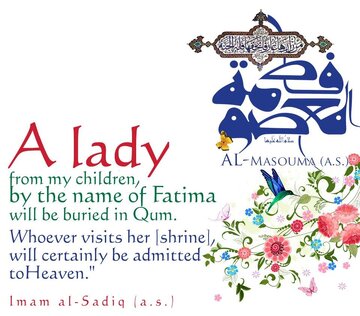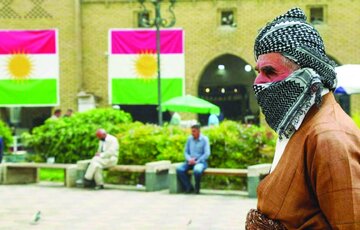AhlulBayt News Agency (ABNA): what practical lessons do we as a community take from Lady Zaynab (a.s) immense contribution to humanity? How well do we appreciate the monumental impact she made on the establishment of our faith and the implications that may have on our lives today?
Throughout the months of Muharram and Safar we hear of the trials and tribulations that Sayyida Zaynab bint Ali (p) had to endure after the martyrdom of her brother, Imam Hussain ibn Ali (p), her children, family members, and companions. But what practical lessons do we as a community take from her immense contribution to humanity? How well do we appreciate the monumental impact she made on the establishment of our faith and the implications that may have on our lives today?
After the tragic, barbaric martyrdom of Imam Hussain (p), the survival of the fourth Imam, Imam Zayn al-Abidin (p), was paramount for the continuation of Imamate. It was Sayyida Zaynab (p) who helped protect him while he was ill, and prevented his captors from killing him through her strength, leadership, and support. It was also Sayyida Zaynab (p) who ensured that the message of Imam Hussain (p) did not vanish from the pages of history. It was with the constant remembrance of the tragic events of Karbala, in the forum of majalis (gatherings of sorrow), that the message of Imam Hussain (p) has remained pulsing with life until today.
As a community, we should continue to recognize the immense contributions that women have made throughout Islamic history. By acknowledging this crucial role, more opportunities may arise for women to be active participants, leaders, and contributors within our centers, mosques, workplaces, households, communities, and schools.
The Strength of Sayyida Zainab (p)
With the survival of the Imamate at stake, it was crucial to protect Imam Zayn al-Abidin (p). Sayyida Zaynab (p) knew that the responsibility of the care of the orphaned children and widows would fall on her shoulders. The fourth Imam (p) was in no condition, due to his illness, to offer her any physical assistance in standing up against the oppressors. We cannot begin to imagine the strength required of an individual enduring the kind of trauma that the survivors of Ashura witnessed and suffered. There was also the emotional toll of the immense loss of loved ones and the sad reality of the brutality and inhumanity inflicted upon the family of the Prophet of Islam (pbuh).
Women must not underestimate their strength, even during the most difficult times. These are situations when being proactive may be of the utmost importance. Imam Zayn al-Abidin (p) did not request Sayyida Zaynab (p) to step back and do nothing. In fact, he relied on her strength a great deal.
The Leadership of Sayyida Zainab (p)
One of the most important qualities of a leader is confidence. Sayyida Zaynab (p), without question, was not lacking in this area. Islam’s foundation is deep-rooted in the contributions and sacrifices of exemplary women. As mentioned in our previous blog, ‘Raising Confident Young Muslim Women’, one can reference Sayyida Fatimah (p), Lady Khadijah (p), and undoubtedly, Sayyida Zaynab (p), among many others, as examples of strong, intelligent, and independent women.
How was Sayyida Zaynab (p), surrounded by soldiers who had just murdered her family, able to have the confidence needed to lead the remaining women and children and protect the fourth Imam (p)? Part of the answer was that her upbringing raised her with belief and trust in the ultimate salvation and justice of God. She also learned that her humanity is valuable and precious. It was this personal connection and trust in God that freed her from any fear of her oppressors and made her an immeasurable leader. We must all take note of this when raising our children, especially when it comes to raising our daughters.
Now our communities should strive to increase leadership opportunities for women. Our centers, workplaces, and mosques should continue to work hard to follow the way of life Prophet Muhammad (pbuh) established, and to value, educate, and respect women. In some cases, today, unfortunately, women may often not feel comfortable in pursuing leadership positions due to the lack of female representation. A possible solution is to create specific positions allocated solely for women so that there are many opportunities to hear their voices and perspectives.
Sayyida Zainab (p) was a visionary
To be a visionary, you should think beyond the here and now and be a forward thinker. The preservation of the Imamate was paramount to the survival of the religion of Islam. Sayyida Zaynab (p) knew that she had to protect her nephew, Imam Zayn al-Abidin (p) and did so as best she could with God’s Divine protection and help. She remained steadfast, protected him physically when necessary, and publicly spoke out when the truth was distorted and covered.
Sayyida Zaynab (p) also knew that to safeguard the future of her grandfather’s religion and its believers people must always remember the sacrifice of Imam Hussain (p), his family, and companions. Women became the flagbearers of the message of Imam Hussain (p). From one majlis (gathering of sorrow) to the next, they have passed the baton of guidance that contained the true message of Islam up until this day.
Women’s Role in Society
Sayyida Zaynab’s (p) strength, leadership, and vision are a lesson for men and women alike in today’s world. Women have an important role to play in all aspects of life: at home, at work, in the community, at the university, at our centers, and mosques. Taking the lessons we learn throughout the months of Muharram and Safar, we can strive to build a better community of inclusion and appreciation of one another. We can create more opportunities and positions for women to take on leadership roles to help our communities continue to grow.
/129





